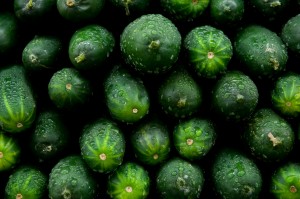“You are what you eat,” the old saying goes. However, many consumers may not know what they are actually eating.
A new study by the National Center for Food Protection and Defense found that about 10 percent of food in a grocery store either is mislabeled, diluted or misrepresented.

The NCFPD declared an official warning, noting the most common issues are found in olive oil, honey, fish products and fruit juices. Many of these products have been found to be either watered down or falsely advertised concerning their contents.
They also found 65 percent of extra-virgin olive oil in grocery stores actually is diluted with lower-quality oils. Michael Dunn, associate professor of food science at BYU, attributes the lack of quality in items such as olive oil, honey and fish products to outsourcing.
“In the case of the products listed, all of them represent food products in commodity markets (that) are driven by imports from developing or transitional countries, where corruption and fraud have historically been commonplace in other sectors, and is making its way into the food sector as well,” Dunn said.
Dunn said most food companies are honest; however, there are a few bad apples that undermine the public’s trust.
“People engaged in fraudulent practices in the food industry are criminals. They look for situations where it’s hard to get caught and profits can be made. People have found ways to mimic high-quality products with low-quality imitations, and often the only way to know for sure is to carry out sophisticated chemical and biological testing,” Dunn said.
Quite often consumers cannot tell when they are settling for lower-quality products. Dan Flynn, a specialist from the UC–Davis Olive Center, says it is because consumers simply do not know the difference.
“Consumers have almost gotten used to this flavor, these off flavors, that reflect the defects you find in bad olive oil,” Flynn said.
Kelsey Yeck, a junior majoring in psychology from Boise, Idaho, is one of many students who takes special interest in the food she chooses. Yeck is currently working on a goal to get healthier and lose 50 pounds. Along with her 6 a.m. workouts, she has met with a nutritionist who advises her to buy higher-quality foods. Yeck said it’s frustrating when labels misrepresent the contents of the food she has taken time to choose.
“What I eat is important to me while I am losing weight and trying to get healthy. If I can’t trust what the labels are saying, then what am I supposed to do?” Yeck said. “We all rely on the information we can get a hold of. I don’t have time to research if a manufacturer is lying to me on everything I buy.”
For most BYU students, food choices are often dictated by which product offers the lowest price. However, springing for the more expensive product can result in better quality. Even as people engage in the pursuit of good deals, food fraud actually costs the U.S. $10-$15 billion annually.
“Purchasing products from reputable companies with a long history of sound consumer practices, watching out for unusually low prices, and shopping at retailers who are diligent in checking out their suppliers are ways to avoid food fraud,” Dunn said.
Being a victim of food fraud can not only cause financial frustration, but it can be dangerous to a consumer’s health. With wheat intolerance becoming more common, and many people having life-threatening allergies, it can be deadly for consumers not to know what they are eating. Unfortunately, it is the consumer who pays the price, either through their wallet or their health.
“Someone who would be willing to cheat their customers in one way would probably not be too concerned about sanitation and safety, so it always raises the question of safety. The basis for food fraud is always economic, and the principal harm that is done is to our pocketbook,” Dunn said.
The Food and Drug Administration has strict regulations on the accuracy of labeling, but research has found these laws are not well enforced. Flynn notes the U.S. simply is not doing enough to ensure laws are followed.
“I think the question comes down to enforcement and clearer standards, and right now, the U.S. has neither,” Flynn said.
The FDA requires foods to be accurately labeled, and it will issue a warning to a company if it is found the company is not fully revealing the facts. Products can be pulled from shelves if the company does not meet the FDA guidelines.




